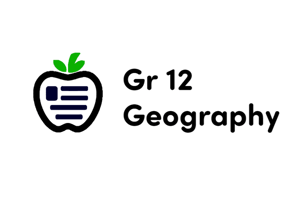Podcast
Questions and Answers
मानव भूगोल किसके संबंध में चिंतित है?
मानव भूगोल किसके संबंध में चिंतित है?
- मानव समाजों के साथ (correct)
- नक्शा बनाने के साथ
- प्राकृतिक आपातिजनक प्रक्रियाओं के साथ
- समय के साथ
क्वांटिटेटिव विधियों का उपयोग करके कौन-सा शाखा प्रकृति और मानव चरित्रितों का अध्ययन करता है?
क्वांटिटेटिव विधियों का उपयोग करके कौन-सा शाखा प्रकृति और मानव चरित्रितों का अध्ययन करता है?
- स्थलीय विश्लेषण (correct)
- क्षेत्रीय भूगोल
- मानव भूगोल
- नक्शा-विज्ञान
कैसे नक्शा-विज्ञान महत्वपूर्ण है?
कैसे नक्शा-विज्ञान महत्वपूर्ण है?
- प्रीति-प्रसंसा
- मानव समुदायों के उपरोक्त प्रभावों की समझ (correct)
- समुंद्री मान्यताएं
- मेटेडोरलॉजी
पर्यावरण संरक्षण में भूगोल का कैसे महत्व है?
पर्यावरण संरक्षण में भूगोल का कैसे महत्व है?
मौसम की पूर्वानुमानन में महत्व है?
मौसम की पूर्वानुमानन में महत्व है?
क्षेत्र का संदर्भ किसे कहते हैं?
क्षेत्र का संदर्भ किसे कहते हैं?
भूगोल के बेहद सारे शाखाओं को किसने अध्ययन किया?
भूगोल के बेहद सारे शाखाओं को किसने अध्ययन किया?
मानव-निर्मित समूचे संघटन में माने जा सकते हैं?
मानव-निर्मित समूचे संघटन में माने जा सकते हैं?
पर्यावरण का क्या अर्थ है?
पर्यावरण का क्या अर्थ है?
'प्राकृतिक भौतिकी' के मुख्य मुद्दों पर हमें कौन-से हस्तक्षेप होते हैं?
'प्राकृतिक भौतिकी' के मुख्य मुद्दों पर हमें कौन-से हस्तक्षेप होते हैं?
Flashcards
Geography
Geography
The study of the Earth's surface, its features, and the distribution of phenomena.
Location
Location
The exact position of something on Earth.
Place
Place
A location with unique characteristics, meaning, and significance to people.
Space
Space
Signup and view all the flashcards
Environment
Environment
Signup and view all the flashcards
Physical Geography
Physical Geography
Signup and view all the flashcards
Human Geography
Human Geography
Signup and view all the flashcards
Spatial Analysis
Spatial Analysis
Signup and view all the flashcards
Cartography
Cartography
Signup and view all the flashcards
Regional Geography
Regional Geography
Signup and view all the flashcards
Study Notes
Understanding Geography: A Fascinating Look at Earth's Spaces and Places
Geography is a multifaceted discipline that delves into the natural and human-made features of Earth's surface, as well as the interactions between these elements and their inhabitants. Let's explore the foundations of geography, its various branches, and how this field of study sheds light on our world.
The Basics of Geography
Geography can be broadly categorized as the description of the Earth's surface and the distribution of phenomena on it. It's the study of patterns and relationships found in the physical environment, living world, human societies, and spatial interactions among them. Key concepts in geography include:
- Location: The specific place where something exists or occurs.
- Place: A location with characteristics and meaning to people.
- Space: The area or volume occupied by an object or phenomenon.
- Environment: The sum of all external conditions that affect an organism, human or non-human.
Branches of Geography
Geography can be divided into several subfields that explore different aspects of Earth's surface and its inhabitants:
- Physical Geography: This branch focuses on the natural environment, including landforms, atmospheric processes, water bodies, and their interrelation.
- Human Geography: Human geography is concerned with human societies, their interaction with the environment, and how these interactions can lead to cultural, political, and economic changes.
- Spatial Analysis: This branch uses quantitative methods to analyze and model spatial patterns and relationships with the purpose of understanding geographic phenomena.
- Cartography: Cartography is the art and science of creating maps, which are essential tools for geographic exploration and analysis.
- Regional Geography: This branch studies the natural and human characteristics of a specific area to better understand its unique patterns and processes.
Geography's Applications
Geography is a field that has numerous applications in everyday life and across industries:
- Environmental conservation: Geography can help in planning conservation efforts and protecting biodiversity by understanding the distribution of species, habitats, and ecosystems.
- Disaster management: Geography aids in the prediction, preparedness, and response to natural disasters by understanding the factors that contribute to their occurrence and impact.
- Urban planning: Geography contributes to smart city planning, sustainable development, and transportation planning by understanding the spatial distribution of urban populations, land use, and infrastructure.
- Climate change research: Geography is an integral part of climate research, as it helps in identifying the causes, consequences, and possible solutions to climate change by studying the interactions between human activities and climate processes.
- Weather forecasting: Geography helps in understanding atmospheric processes and predicting weather patterns by studying the distribution of temperature, humidity, and air pressure across the globe.
Conclusion
Geography is a multifaceted discipline that provides valuable insights into our physical and social world. By studying geography, we gain a deeper understanding of the natural and human-made features of Earth's surface, as well as the interactions between these elements and their inhabitants. From environmental conservation to urban planning, geography has numerous applications that contribute to a better quality of life across the globe. So, whether you're a student, a teacher, or just someone with an interest in understanding our world, geography is a fascinating field to explore.
Studying That Suits You
Use AI to generate personalized quizzes and flashcards to suit your learning preferences.
Description
Delve into the multifaceted discipline of geography, exploring the natural and human-made features of Earth's surface, and the interactions between these elements and their inhabitants. Learn about the basics of geography, its various branches, and its applications in everyday life.




